In this excerpt, Molinar discusses the process by which the Major Devil is chosen and trained for the role. He also clarifies that he ascended to the role of Major Devil in Nombre de Dios and arrived in Portobelo with the experience and title to play the role.
Archives
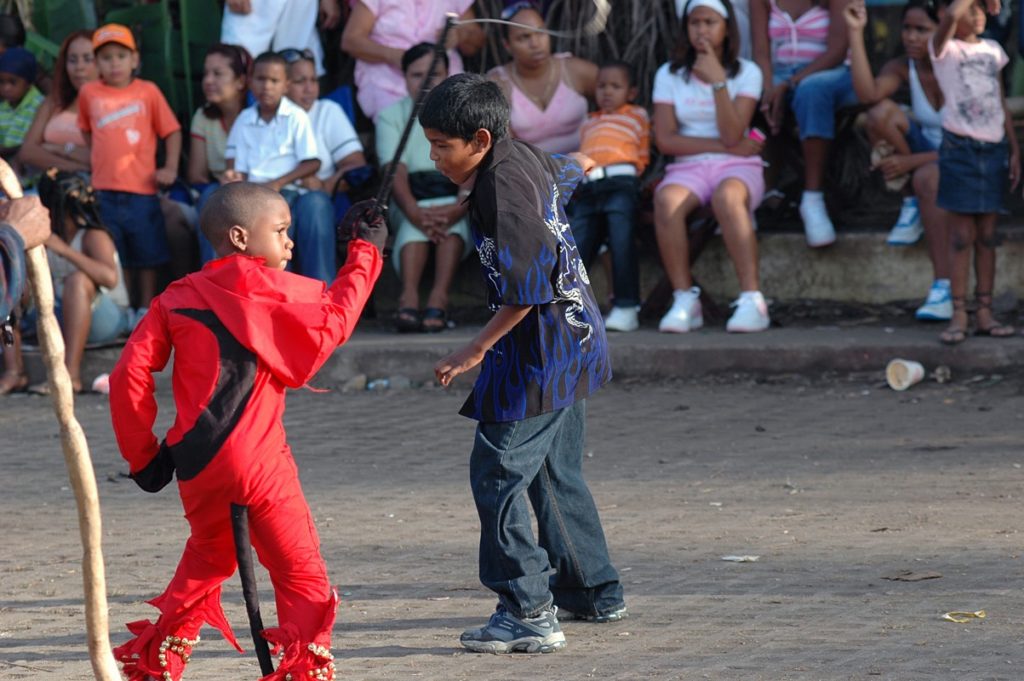
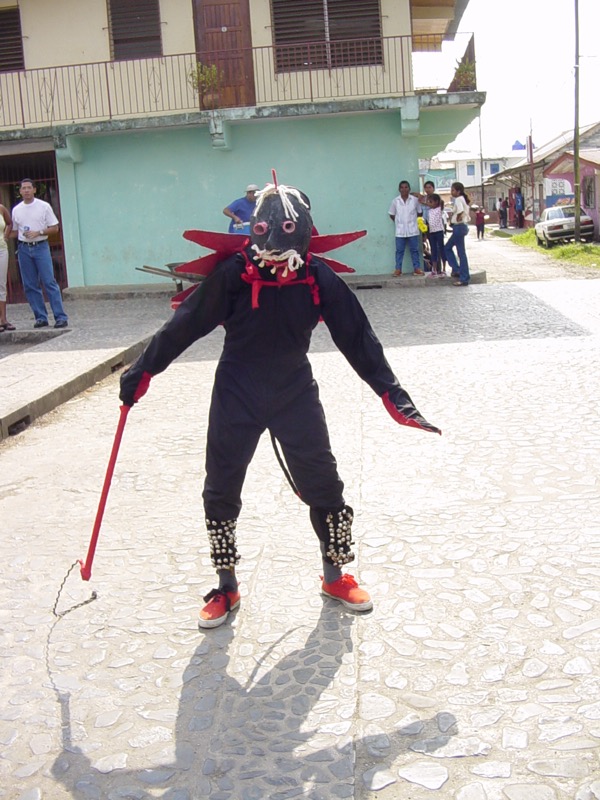
In this short excerpt, Molinar discusses his choice to come out as Major Devil each year even after training others to do so.
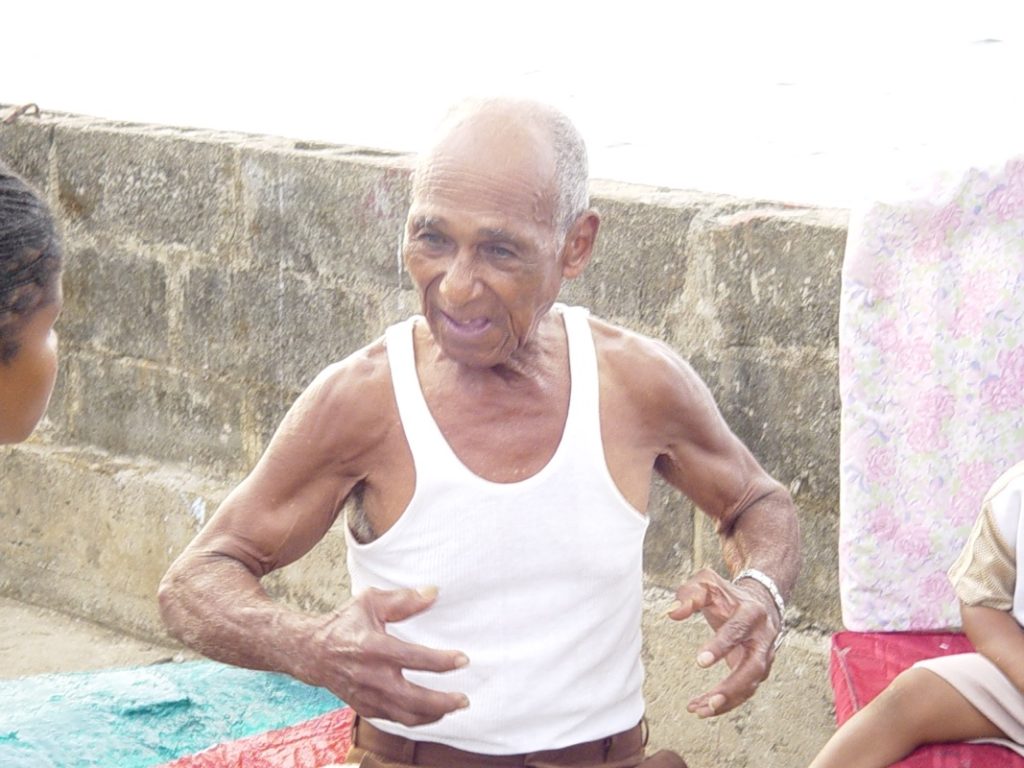
In this excerpt, Molinar explains the “pujido,” a sound that the devils within the Congo tradition of Panama make that is a part of their embodiment of the character. The literal translation of the word is “grunt,” but the effect is more than that. The sound amplifies internal energy and is done in response to both internal desires and external stimuli.
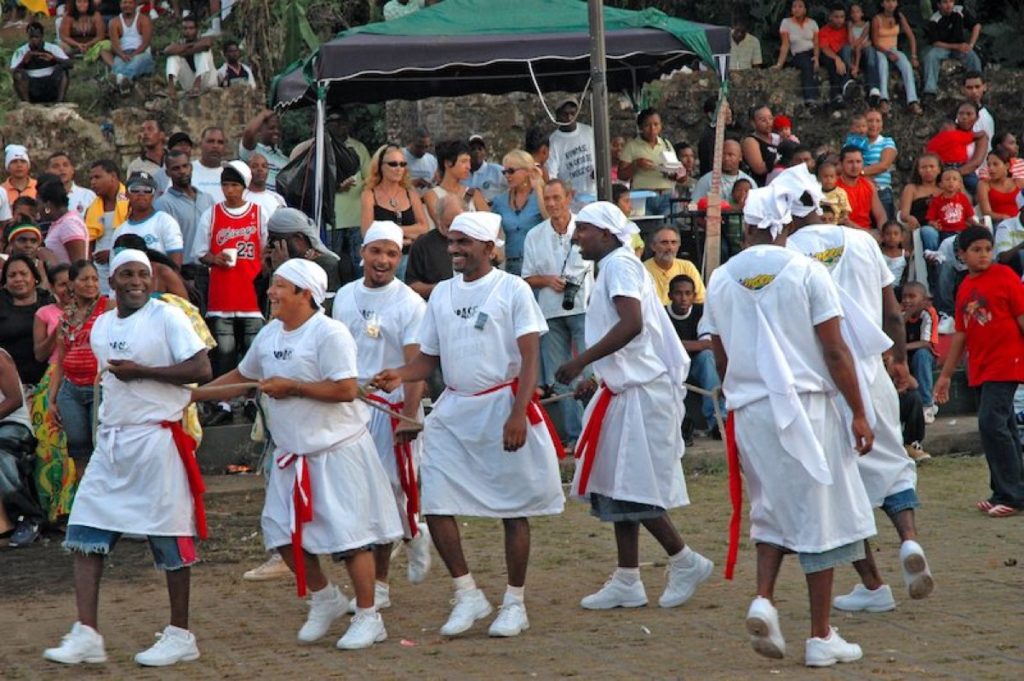
In this excerpt, Molinar shares his experience of being symbolically blessed or “baptized” as the Major Devil character. Just as the “pujido” or “grunt” helps to amplify internal energy, the process of being symbolically baptized helps to abate energy.
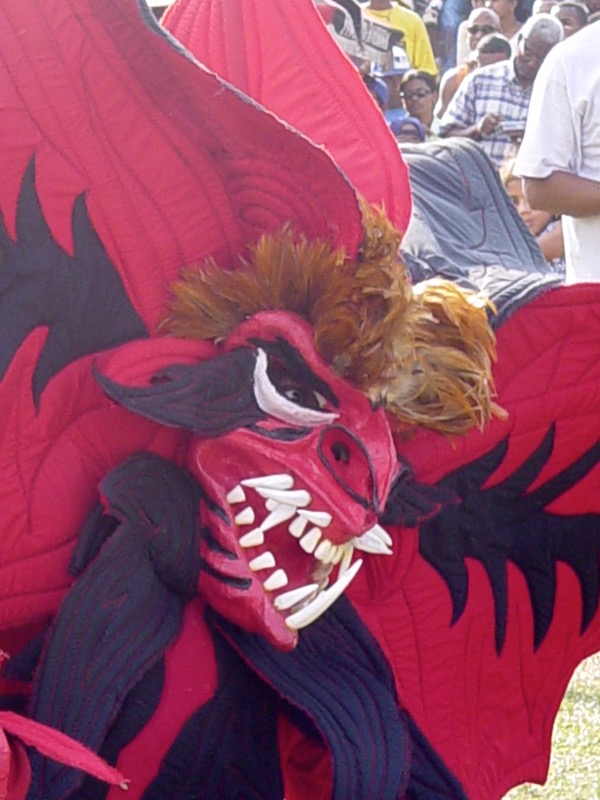
In this excerpt, Molinar discusses the practice of symbolically selling the devil at the conclusion of the Congo game and his interpretation of what the devil character represents within the Congo tradition.
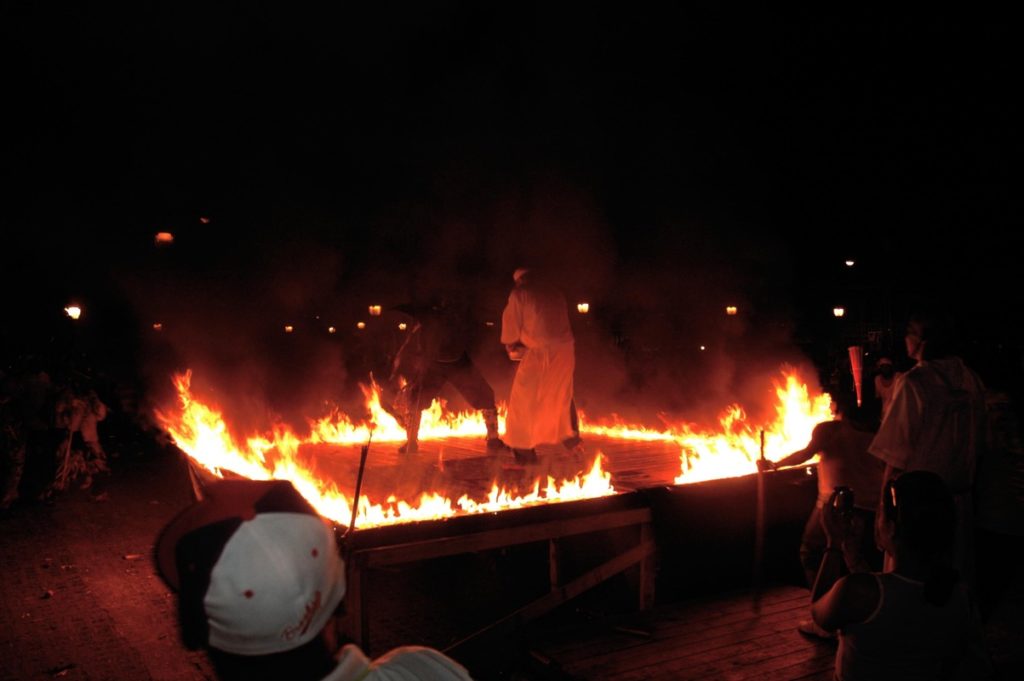
In this excerpt, Molinar discusses a few of the changes that he has witnessed in the devil character’s embodiment within the tradition that displease him and responds to Arturo Lindsay’s question regarding the escalating violence he has witnessed with the way some younger practitioners wield their whips.
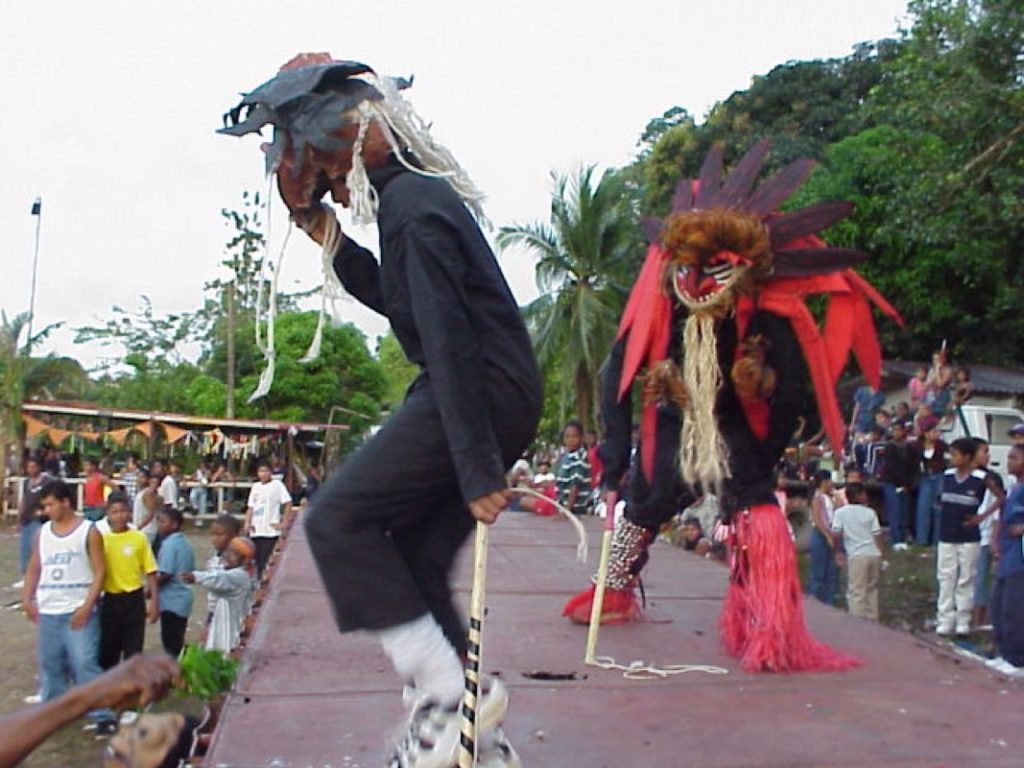
In this excerpt, Molinar discusses the current existence of three people who play the role of Major Devil in the Congo tradition even though the official narrative about the tradition only signifies one Major Devil character playing at any one time.
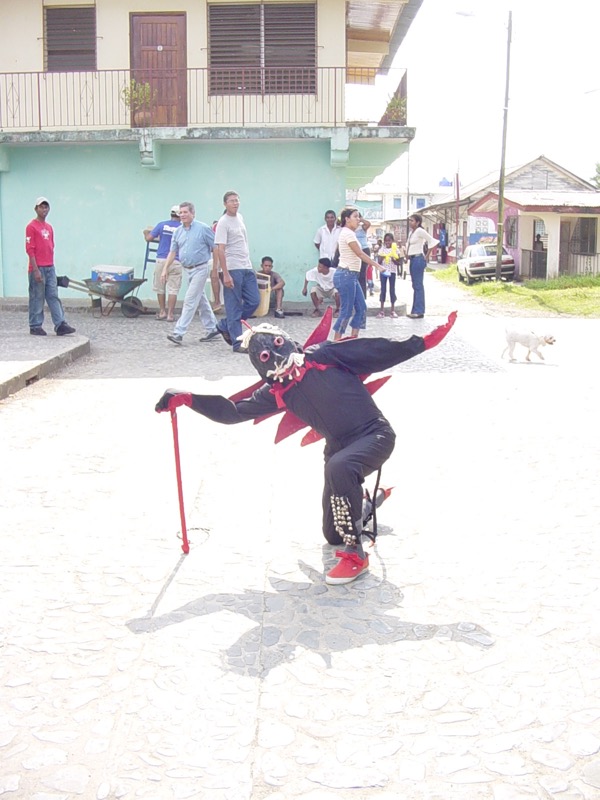
In this excerpt, Molinar discusses how he came to play the role of Major Devil in Portobelo. And how he reintroduced the practice of “Blessing” or “Baptizing” the Devil.
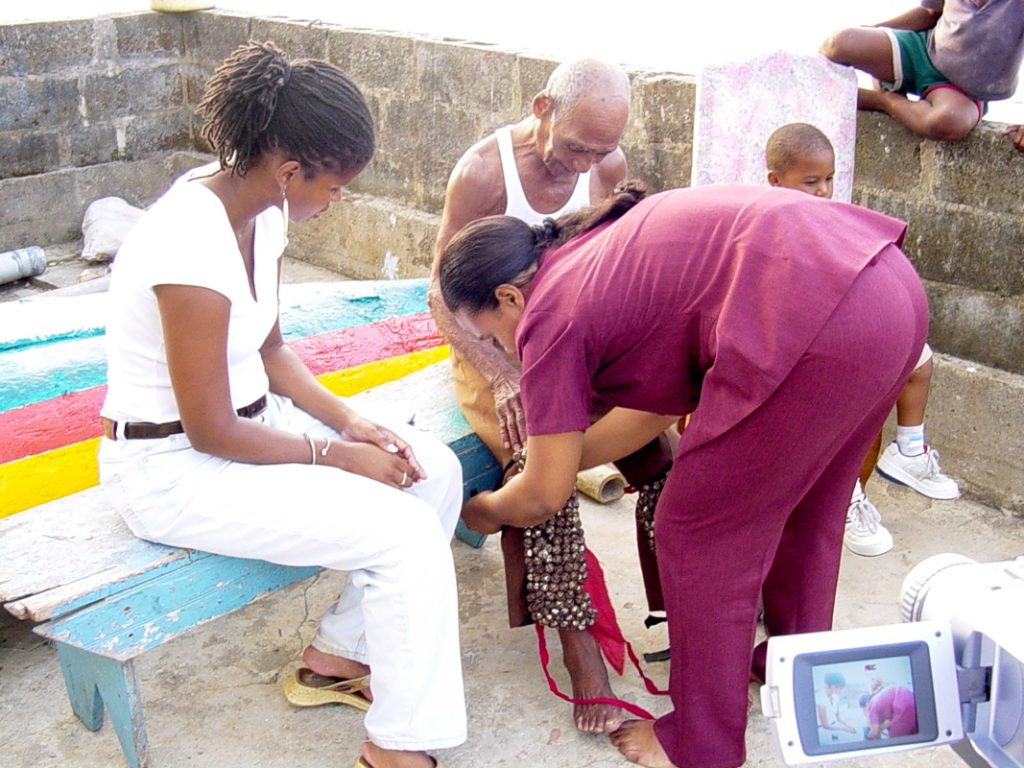
In this excerpt, Molinar discusses how he learned the role of Major Devil and the tradition of “Blessing the Devil” from a Portobelo native named Viudo Ceballos who had moved to Nombre de Dios. He also describes the way the devil tradition was practiced in Portobelo when he arrived there in 1945.
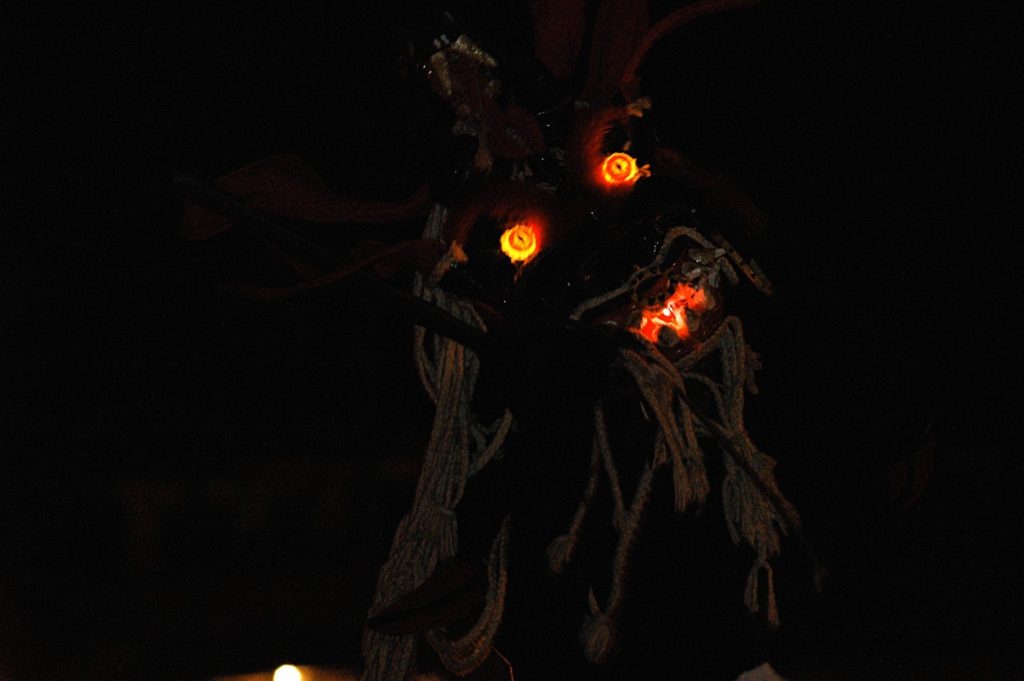
In this short excerpt, Molinar laments some of the escalating violence that he witnessed in the early 21st century.
